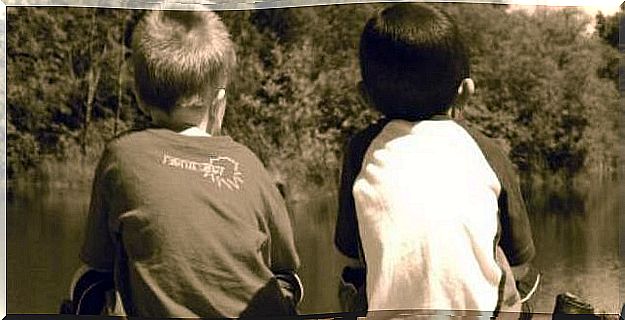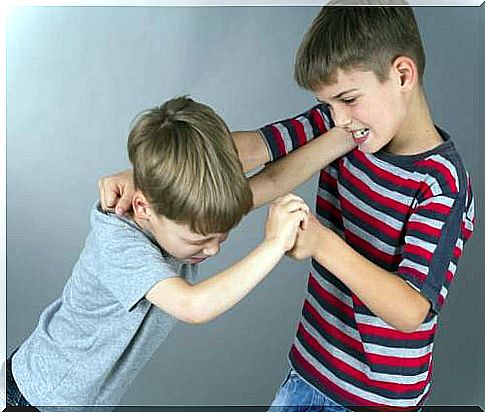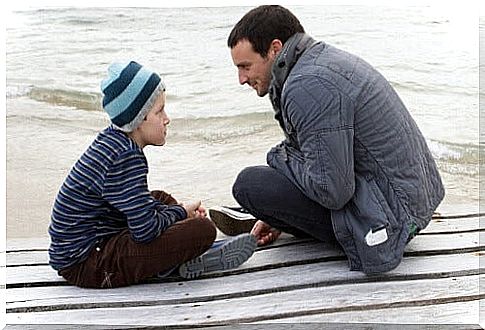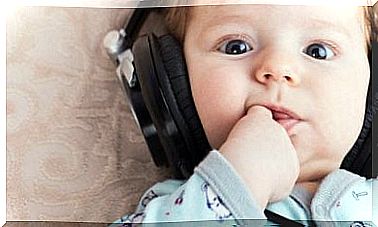What To Do When I Don’t Like My Son’s Friend?

Everything seemed easier when your child was small and depended above all on you to get around, to connect with other children and adults … to socialize. At that stage, your child’s friends emerged from the environment where you moved, but all that changes as your baby gains autonomy.
For mothers, their children are always their babies, no matter how old they are, however time passes and each time they get bigger and more autonomous, they also have more freedom to choose their friends, which they will do according to psychological characteristics. , social and emotional characteristics of its evolutionary moment.
And it is precisely during adolescence, when the group of friends takes on special importance. Most teenagers have a great need to belong to a group and to be accepted, therefore they place a lot of importance on what other people think of them, which puts great pressure on their behavior.
I don’t like my son’s friend, what do I do?
Although many parents are aware that their teenagers’ friends are important, some of them do not like us or do not seem like a good influence. Sometimes we don’t like them because of personality, appearance, customs, language, among other things.

However, and before analyzing what to do in this situation, it is necessary to get rid of some prejudices to impartially assess whether the impression that has been made of the friend is based on a real threat to the child, or simply is mere antipathy from U.S.
Parents must value and respect tastes and choices from a very young age. All human beings have the right to choose in all aspects of their life, including their friends, and our children are no exception.
Have confidence in the education and upbringing you have given your child. If it has been solid, based on respect, love, self-esteem and the good values that you have instilled in them through example, the child will have a solid emotional structure to know how to assess what type of child or adolescent they want to be with and not letting yourself be infected or influenced by harmful behaviors on the part of your chosen friends.
Handle the situation with intelligence and maturity
Forbidding your child to maintain a friendship with someone you do not like can cause rebellion and tension in the relationship between you. With the prohibition you will only create the least desired effect in the face of the problem you want to solve, since it is most likely that your child will feel the obligation to lie to continue to secretly relate to the friend you do not like.
Only in some cases may the only alternative be the absolute prohibition with this friend that we do not like, because this friendship only causes negative consequences in the life of your child. If so, it is convenient that you explain the reasons why that friendship is not beneficial for him and why they have decided that it is better that he does not relate to that person.

In addition to this, you must apply intelligent strategies such as seeking healthy activities such as sports, art or volunteering with new groups that offer positive contributions to socialization experiences and that healthily cover their need to connect with other friends of their age.
The lawyer Carmen Inés Rivero, who is a Venezuelan psychologist and educator, offers the following recommendations in an article entitled Los amigos de mis niños: good or bad influence, which was written for the 58th edition of the Espacio Familiar magazine :
Be interested in meeting their children’s friends and their parents:
Take advantage of the situations that arise in everyday life to meet your children’s friends, offer to take them in their car, invite them to your house, club or any other activity. It also tries to share with other parents, surely they also want to know who is accompanying their children.
Talk to your children:
He openly expresses what he values about his friends but also what catches your attention or worries you. Express your feelings of appreciation, satisfaction and concern, without disqualifying or judging, just describe the situation, do not attack the friend, this will only put your child on the defensive and possibly not listen to you.
Teach them to decide for themselves:
As we explained before, children and adolescents in their development have a great need to belong to a group and to be accepted, therefore they give great importance to what other people think of them; and this puts great pressure on their behavior.
Talk to your child about peer pressure, about the importance of deciding for himself. Remind them that feelings also protect them, if they feel that what the group or friend is proposing is not right, they are most likely correct.
Prepare them to handle group situations:
It is important that children and young people know what they can do in difficult situations. Often they will have to face moments when they do not know how to act, prepare them with questions and hypothetical situations or recreate small sobering examples in order to avoid different situations taking you by surprise in the future and you can choose or decide the best.
Remind them that they can always come to you:
When the parent-child relationship is healthy and solid, the influence of parents is stronger and more important than any other, in the decisions of children or adolescents, therefore express to your child your intention to listen, support and guide them forever.









